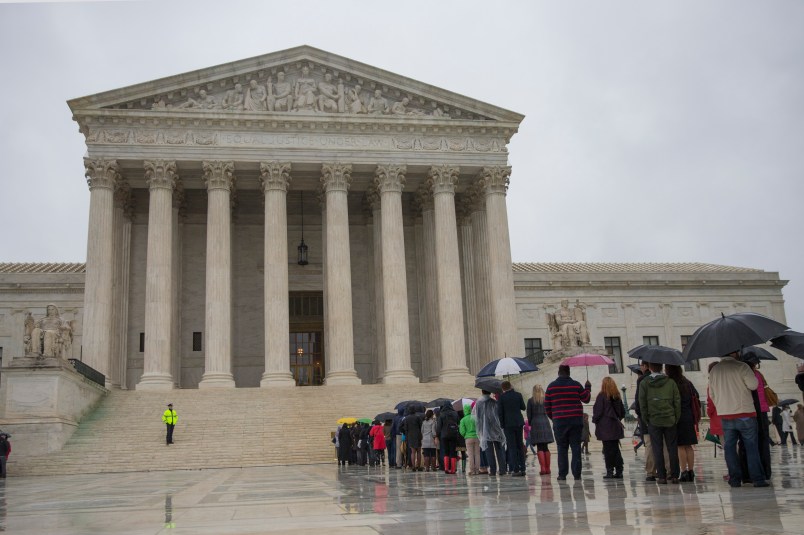WASHINGTON (AP) — The Supreme Court ruled Thursday that the First Amendment protects public employees from job retaliation when they testify in court about official corruption.
In a unanimous decision, the court decided in favor of Edward Lane, a former Alabama community college official who says he was fired after testifying at the criminal fraud trial of a state lawmaker.
Lower courts had ruled against Lane, finding that he was testifying as a college employee, not as a citizen.
Writing for the court, Justice Sonia Sotomayor said Lane’s testimony was constitutionally protected because he was speaking as a citizen on a matter of public concern — even if it covered facts learned at work.
But the high court said the college’s former president is immune from damages under laws shielding public officials from lawsuits in their official capacity.
Lane was director of a college youth program at Central Alabama Community College in 2006 when he discovered that a state lawmaker, Sue Schmitz, was on the payroll but not showing up for work. Lane fired Schmitz despite warnings that doing so could jeopardize his own job.
Federal prosecutors began investigating Schmitz and Lane was later called to testify before a federal grand jury and under subpoena at Schmitz’s two criminal fraud trials. Lane says he was fired in retaliation after testifying at the first trial. He brought suit against Steve Franks, the former college president, as well as the college’s current president, Susan Burrow.
Lane lost at the trial court and before the 11th U.S. Circuit Court of Appeals. The lower courts relied onSupreme Court precedent that the First Amendment protects public workers only when they speak out as citizens, not when they act in their official roles. The 11th Circuit said that Lane was testifying as a college official, not as a citizen.
The appeals court also found that Franks was shielded from liability because they were acting as public officials. Government officials are generally protected from lawsuits seeking damages unless they violated the law or clearly established constitutional right.
The Supreme Court agreed that, under the 11th Circuit’s opinions at the time Lane was fired, it wasn’t clear that public employees had any First Amendment protection in giving court testimony about official wrongdoing. Thecourt remanded the case for further consideration of the allegations against Burrows.
The case is Lane v. Franks, 13-483.
Copyright 2014 The Associated Press. All rights reserved. This material may not be published, broadcast, rewritten or redistributed.







Now that is truly ****ed up. You’re protected from retaliation by the First Amendment, but the people who violated your rights are immune. And you don’t get your gig back, either? (Although in fairness, I don’t know that I’d want the job any longer – I think I’d rather have a substantial settlement.)